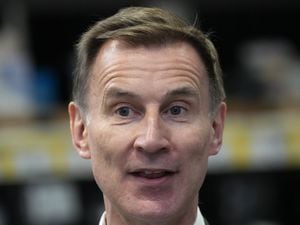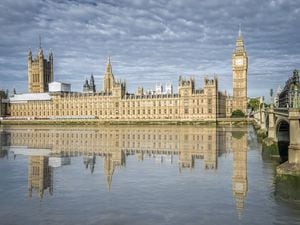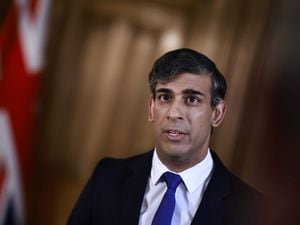UK children missing school because of ‘period poverty’, campaigners say
Celebrities joined the Freedom4Girls group in a protest held at Downing Street.

Children in the UK are missing several days of school a month because they are too poor to buy sanitary products, according to a campaign group.
Freedom4Girls usually distributes period products in Kenya but realised it was not just women and girls in poor countries who could not afford sanitary products when they were contacted by a school in Leeds earlier this year.
The school had a number of girls who were truanting when they had their period because they could not pay for products or they did not understand what was going on with their body.
Nina Leslie, the group’s founder, said she met women and girls who had used all kinds of improvised devices.
“I spoke to a woman who could only afford a loaf of bread to feed her children, so she used a slice of bread for her period,” Ms Leslie said.
One 11-year-old girl told BBC Radio Leeds she had improvised and used socks or toilet paper sellotaped into place because her family did not give her any money to buy sanitary items.
Freedom4Girls was joined in a protest at Downing Street on Wednesday evening by Free Periods, a group campaigning for tampons and pads to be provided free in schools for children on free school meals.
Celebrities including models Adwoa Aboah and Daisy Lowe joined the protest, as well as former Labour strategist Alastair Campbell.
Free Periods argues the cost of doing this is relatively low, about £4.78 million per year, compared to the £102 billion education budget in 2016-17.
Free products “will change the lives of girls whose families are living in abject poverty, who often struggle to put a meal on the table”, said Amika George, the group’s 18-year-old founder.

“Toilet paper is free in schools, so why not sanitary products?” asked Jess Phillips MP, a campaigner on the issue who gave a speech at the protest.
She added: “I want to open my speech by saying I’m on my period.”
A government spokesman said they have invested £11 billion since 2011, or £2.5 billion this year on the pupil premium for the most disadvantaged students. Schools are free to use this funding how they like, on sanitary items or not.
Under EU law, the UK has to levy a 5% tax on period products, which also slightly increases the cost.
This is controversially at odds with the zero-VAT rate on other very similar items, like incontinence pads.
The government says they “strongly support” scrapping this after Brexit, and currently the £15 million it brings in a year is being sent to women’s charities.
Paula Sherriff, another MP and campaigner on the issue, suggested the takings from this tax could be used to support some “period poverty” campaigns.
“It would buy a huge amount of sanitary pads”, she said.
Beyond the cost, campaigners argue stigma can also prevent some girls from getting access to sanitary products.
Ms Leslie says boys and girls should receive sex education side by side, so girls do not feel as embarrassed discussing the topic.
She said: “If there was no stigma there would be no period poverty. End of. That even happens in Kenya.
“Some girls don’t even get the periods talk at school until they’re 14 or 15, which is just too late.
“We just need to talk about it like it’s a normal thing, because it is a normal thing.”





